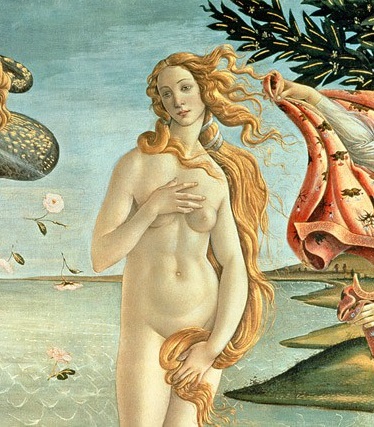Birth of Reason
This series of lectures will take you on a journey of discovery from antiquity to the present. The lecturers will analyse, contextualise, and possibly criticise some of the more conspicuous rationalisation processes that have shaped Western civilisation. Subjects include Aristotle’s resolutely scientific approach to reality, Thomas Aquinas’ astonishingly rational views of religion, and the vicissitudes of the concept of love as the counterpart of Western views of rationality. The series will conclude with a lecture on how, since René Descartes, our rational self-image has contributed to a distorted perception of our fellow creatures in the animal kingdom.
The individual lectures
- The Birth of Scientific Method from Aristotle’s Biology (De Haas / 20 Sept)
Aristotle’s insights in philosophy and science have inspired people up to this day. His own inspiration came from years of detailed biological research, to which he dedicated many of his writings. We shall see how Aristotle’s scientific method comes to life in his biology and yields basic concepts of his philosophy. Finally, the audience will be provided with a list of Aristotelian data on which they can practice their skills in Aristotelian science.
- Thomas Aquinas: Adam and Eve in Paradise (Goris / 27 Sept)
Did Adam and Eve enjoy sex in Paradise? Did they dream and relieve themselves? Thomas Aquinas (c. 1225-1274), arguably the most influential of Medieval thinkers, asks these questions in order to examine what makes up pure human nature. Aristotle’s notion of ‘nature’ (φύσις) was rediscovered in Aquinas’ time. By incorporating it into his theological anthropology, Aquinas transformed Augustine’s dichotomy of sin and grace and paved the way for a secular view on human beings in modernity.
- Reason and Passion: Love in the History of Western Philosophy (Pott / 4 Oct)
What is love? Traditionally, Western philosophers distinguished between three conceptions of love: eros (erotic passion), agape (unselfish care), and philia (intimate friendship).
Nowadays, eros seems to be the least popular of the three. Influential contemporary philosophers warn us that eros is irrational, and morally dubious – a steamy romantic passion that produces illusions and destroys lives! By contrast, they propose definitions of love highlighting the fusion of two moral persons, or the disinterested concern for one’s beloved.
So, what is love about? Is it a virtue or rather a form of biological energy? Does it involve a rational attitude or an irrational desire? We will try to find answers by tracing the origins of our prevailing conceptions of love, and by exploring how a rereading of Plato’s Symposium can help us understand that love is far more complex and mysterious than most present-day theorists would have us believe.
- Descartes, Darwin, Dennett: Paradigmatic Changes in our Perception of Animals and Mind (Van Hooff / 11 Oct)
Descartes proposed that animals are no more than machines. A grandiose thought, because it prompted the question: “How then does it work”?, which triggered the flourishing of empirical biology and physiology. Descartes also regarded man as a machine, but with something extra, the non-physical λόγος or ratio, which is compliant with customary dualistic body-mind thinking. Then came Darwin. He viewed both body and soul as a product of evolution and natural selection. And now there is modern behavioural biology and the comparative cognition and neurosciences, which pulverise the traditional man-animal dichotomy.
The lecture by Prof. Jan van Hooff on 11 October can be attended as an individual lecture. More information about this lecture and the registration here.

Karl Dittrich Hall, Student Services Centre
Extra Information
Dates and Location
Thu 20 and 27 Sept, 4 Oct – 19:30 to 21:30
Karl Dittrich Hall, Student Services Centre,
Bonnefantenstraat 2
Thu 11 Oct - 19:30 to 21:30
Auditorium, Minderbroedersberg 4-6
Costs whole series
UM students €8
UM employees and students from other schools €20
Others €40
Registration
You can register here for this lecture series.
About the lecturers
Prof. Frans de Haas
Professor of Ancient and Medieval Philosophy, Leiden University
Harm Goris, PhD
Assistant Professor of Systematic Theology, Tilburg University
Prof. Heleen Pott
Professor of Philosophy, Erasmus University Rotterdam
Prof. Jan van Hooff
em. Professor in Ethology & Socio-ecology, Utrecht University
Lees ook
-
02 sep15:30 - 17:00
Opening Academisch Jaar 2024/25
Maandag 2 september van 15.30 tot 17.00 uur openen we feestelijk het nieuwe academisch jaar in Theater aan het Vrijthof.
-
12 okt09:30 - 16:30
Bachelor Open Dag
Tijdens de Bachelor Open Dag kun je écht sfeer proeven en een goed beeld krijgen van onze bacheloropleidingen, de unieke manier van onderwijs, de universiteit en het leven in onze studentenstad Maastricht.
-
09 nov09:30 - 15:00
Master Open Dag
We hopen je op onze campus te begroeten tijdens de volgende Master Open Dag en een goede indruk te geven van wat studeren aan de Universiteit Maastricht inhoudt.